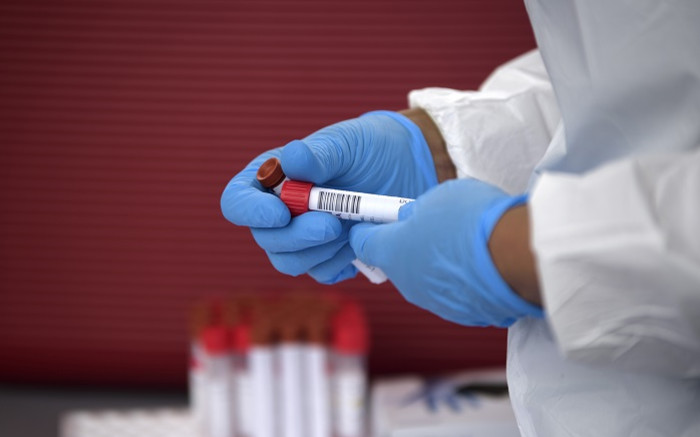[ad_1]
To determine why some people develop severe lung inflammation when sick with COVID-19, the researchers analyzed mutations in the genomes of more than 2,000 critically ill patients in Britain.
FILE: A healthcare worker organizes newly administered COVID-19 tests at the United Memorial Medical Center’s COVID-19 testing site in Houston, Texas, Thursday, June 25, 2020. Image: AFP.
PARIS – Scientists said Friday that they had identified genetic variants that make patients more likely to develop severe COVID-19, in a breakthrough that could allow new and existing drugs to help patients survive the disease.
To determine why some people develop severe lung inflammation when sick with COVID-19, the researchers analyzed mutations in the genomes of more than 2,000 critically ill patients in Britain.
They compared their genetic makeup to that of a control group and identified up to eight sequences that were more common among COVID-19 patients.
They found that these sequences are involved in the body’s inflammatory response and how the immune system fights off pathogens like the new coronavirus.
After further computer analysis, they highlighted two specific genes, TYK2 and CCR2, which encode inflammatory protein molecules.
The researchers found that people who produce more of the TYK2 enzyme appeared to be at higher risk of developing severe COVID-19.
“We are trying to break through the tremendous complexity of the human immune system to find the levers that we can pull that will change the outcome for the patient,” said Kenneth Baillie, geneticist at the University of Edinburgh and lead author of the study published in Nature.
“The beauty of genetics is that it can predict the effects that a drug might have. What is really interesting about this study is that we have found genes that are directly relevant from a therapeutic point of view, so they lead us directly to treatment.”
Baillie said there is already a group of drugs on the market that limits the action of TYK2. These are known as JAK inhibitors and are often prescribed for chronic conditions such as cancer and arthritis.
“We show that people who produce more TYK2 have a higher risk of contracting COVID. And there is a drug that inhibits it,” he told reporters via video link.
The authors noted that there is also an antibody treatment currently in clinical trials that blocks CCR2, a protein involved in the immune response.
They said large-scale trials were urgently needed to test these treatments in patients with severe COVID-19.
Sir Mark Caulfield, chief scientist at Genomics England and director of the NIHR Center for Biomedical Research at Barts Hospital, called Friday’s research “a remarkable result.”
He said the team’s study of the patients’ genomes could eventually create a “comprehensive inventory of variants that change our susceptibility to the severity of COVID.”
“And maybe, just maybe, as a result we will find a new therapy that helps people survive better.”
Download the EWN app on your iOS or Android device.
[ad_2]
